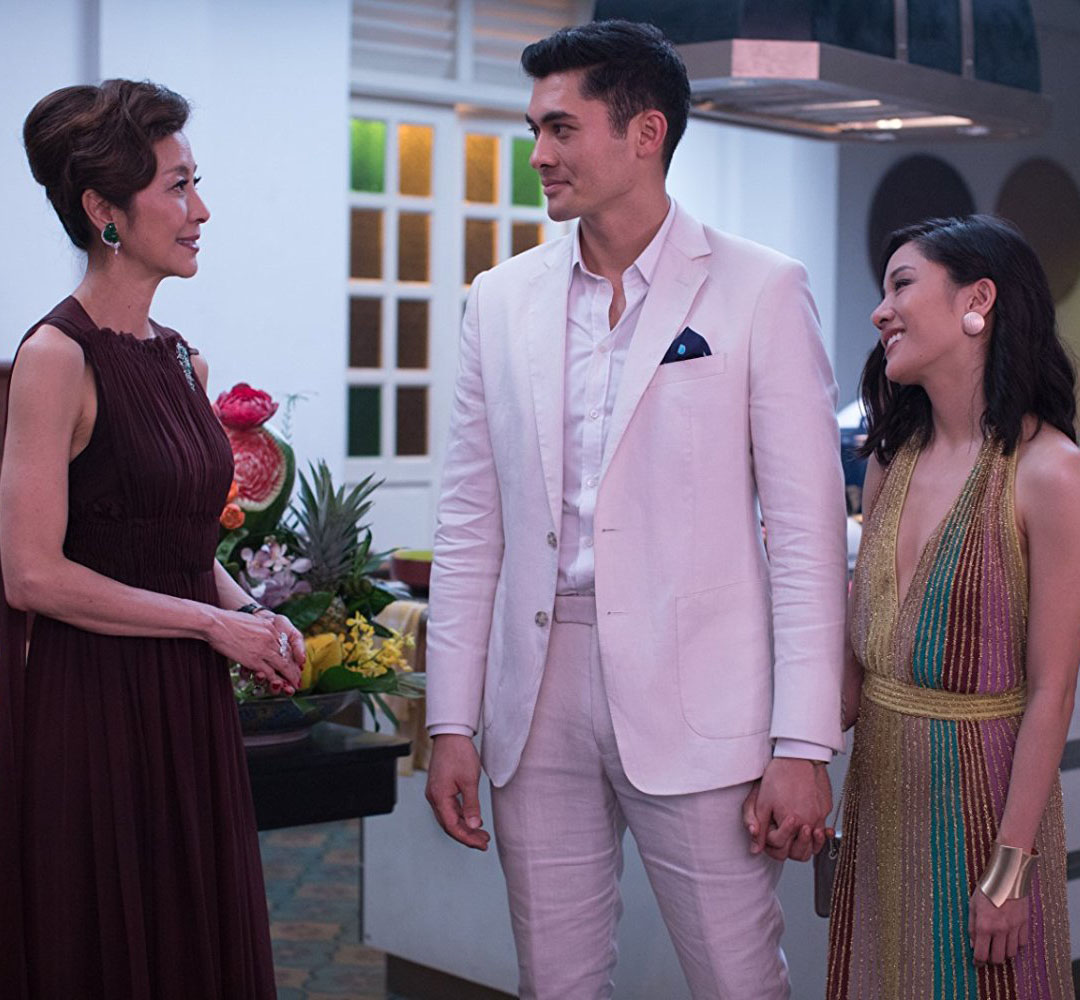The producers of Crazy Rich Asians have cleverly deployed a strategy first used, to my knowledge, to sell Bridesmaids in 2011: taking a wildly commercial movie and turning it into a sociocultural cause célèbre before its opening. The ribald Bridesmaids was brilliantly spun into a breakthrough feminist work because it was an R-rated comedy toplined and written by women. It was, we were told, very important that Bridesmaids be the number-one movie of the weekend in order to give females a voice in comedy. That is how it became a noble moral act to see a picture in which a woman wearing a wedding dress contracts food poisoning and relieves herself in the middle of a Milwaukee street.
The same strategy was pursued successfully with the recent releases of Wonder Woman and Black Panther, which were presented to us not merely as mega-budget superhero flicks certain to garner enormous box-office receipts but as signature advances in gender and civil rights because Wonder Woman was directed by Patty Jenkins and Black Panther by the African-American Ryan Coogler. I have no problem with these efforts, but make no mistake, it’s just salesmanship—no different from Benetton’s working to connect its clothing line with the glories of diversity. People fall for it because there’s nothing better than being told you are acting virtuously by going to a movie or buying a shirt.

Crazy Rich Asians is a fizzy romantic comedy of a sort we haven’t seen much of in the last half-century—a Rock Hudson-Doris Day movie in which Doris is a hardworking career girl blissfully unaware that her boyfriend Rock is filthy rich. Doris goes home with Rock and learns the truth—that Rock’s family and friends swim in their wealth the way Scrooge McDuck swam in his gold while also being surprisingly snobbish about their social standing. Can Doris measure up? Does she want to?
The twist here is that Doris is a Chinese-American economics professor at NYU named Rachel Chu (Constance Wu) while Rock is her university colleague Nick Young (Henry Golding), a Singaporean with a British accent. They’ve been dating for a year when he persuades her to come home with him for a couple of weeks because he is going to be best man at his friend’s wedding. Her arrival in Singapore is preceded by an endless series of text messages whizzing from Greenwich Village to the Malay Peninsula about the mystery woman accompanying one of Asia’s most eligible bachelors. By the time they arrive, everyone in Singapore knows about Rachel—but she still has no idea who Nick really is. Hijinks and heartbreaks and family dramas ensue.
Crazy Rich Asians is irresistible junk. Its premise is unbelievable—how could Rachel Chu fail, in 2018, to have googled her new boyfriend?—but cute. And its portrait of the obscenely materialistic culture in which Nick’s family is a leading light is both fond and cartoonish. The wonderful direction by Jon M. Chu luxuriates in the trappings of wealth the same way the crazy rich Asians of the title do. It’s a fun, knowing, but essentially idea-free movie about absolutely nothing, and I loved it.
To be honest, though, I loved Kevin Kwan’s novel of the same name, published in 2013, even more; it’s funnier, cleverer, while being even more lubriciously devoted to the brand-name-obsessed culture it’s supposedly parodying than the movie.
But let’s be clear about this: Crazy Rich Asians is a beautifully constructed rom-com with a gloriously interesting new setting. It’s no landmark moment for Asian-American culture. If anything, it offers a paper-thin depiction of Asian life that veers perilously close to both misogyny and cultural condescension. I give it a pass on these fronts because it’s a comedy and comedies are about people behaving badly. What really amuses me, though, is that woke people who take offense at everything are giving this one a pass—or even participating in the marketing effort to make it a must-see because it checks off various identity-politics boxes.
